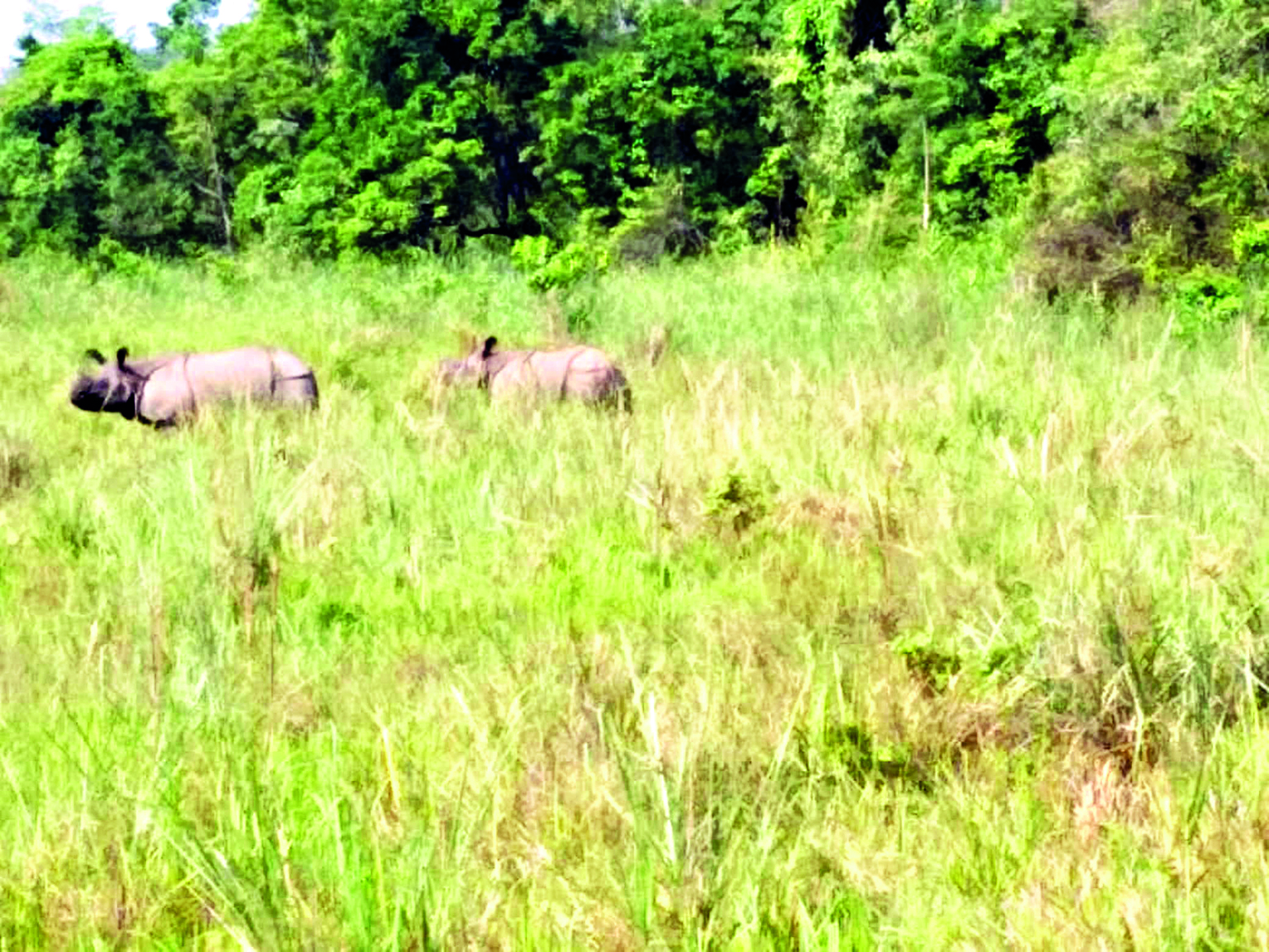Fears mount over rhino deaths in Jaldapara

Alipurduar: Fears over multiple rhinoceros deaths in Jaldapara Wildlife Sanctuary have sparked alarm. However, the Forensic Science Laboratory in Belgachia, Kolkata, has ruled out anthrax after examining the carcasses. Post-mortem examinations have revealed that large numbers of tapeworms in the intestines of the dead rhinos could be behind the deaths.
The findings have prompted swift action from the Forest department to protect the animals. Parveen Kaswan, Divisional Forest Officer of Jaldapara, expressed his concern after closely inspecting a sick rhino calf rescued from the swamps of the North Range on August 15. He stated: “The rhino calf is unable to stand. Our veterinary and forest teams are working tirelessly to save it.”
Sources from the Forest department revealed that another rhino calf, also rescued and treated by veterinary and the forest staff, unfortunately succumbed to its condition on August 4. Disturbingly, all the deceased rhinos exhibited similar symptoms, including severe tapeworm infestations. Preliminary hypotheses suggest that these parasites caused ulceration in the rhinos’ intestines, leading to weakness, loss of mobility and ultimately, death. The situation has drawn parallels to a mysterious outbreak in 2018 when six rhinos died in Jaldapara under similar circumstances. Determined to prevent a repeat of that tragedy, North Bengal Chief Forester Bhaskar JV swiftly dispatched samples of the dead rhinos’ carcasses to the Belgachia laboratory. “The tests have ruled out any known diseases, but we are continuing to investigate the cause of these deaths,” stated Bhaskar while talking to Millennium Post.
Foresters suspect that domestic pigs from nearby villages, which often enter the forest long with other cattle, may be the cause behind the tapeworm infestation. This has added urgency to the situation as foresters seek to contain the spread. Jaldapara veterinary officer Utpal Sharma noted: “This situation is alarming because no deworming antidote has been developed. We can’t use injections and administering deworming medication to wild rhinos is nearly impossible. I’ve shared my suggestions with the Divisional Forest Officer. We’ll have to see how things unfold.”



